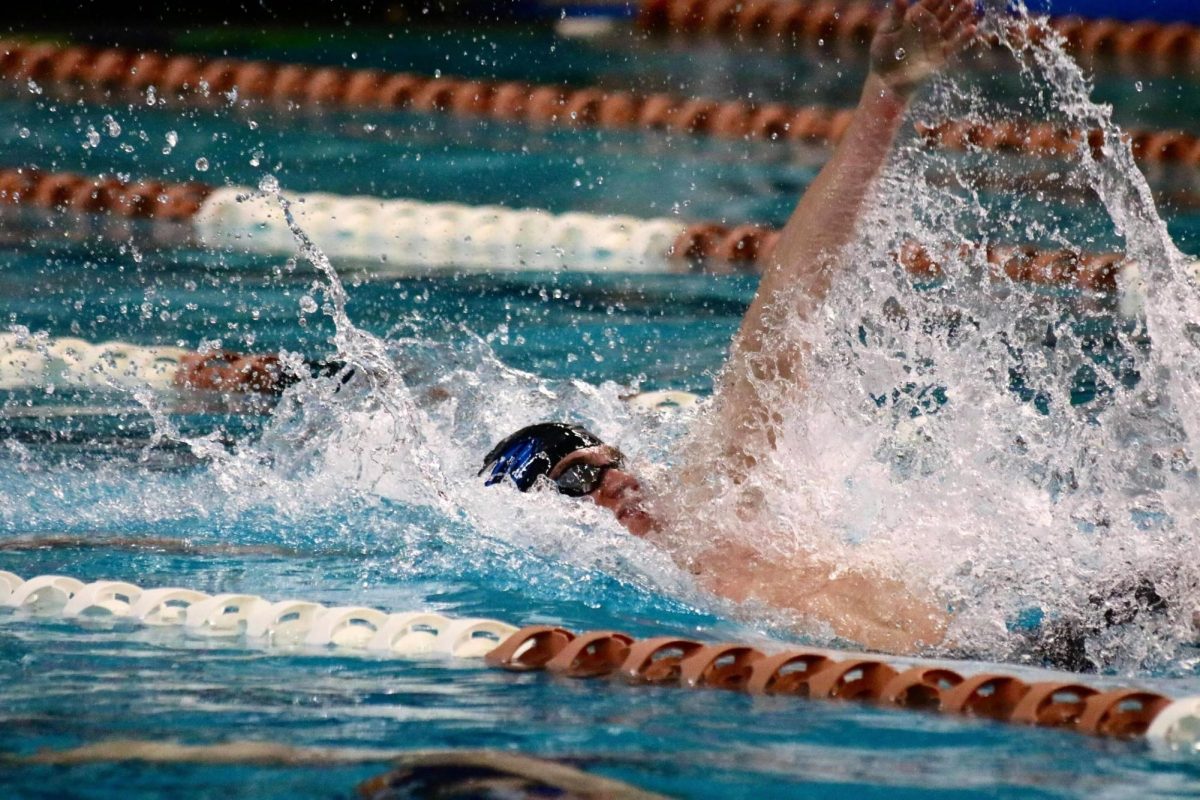In team meetings with Texas swim and dive, freshman swimmer Jeremy Kelly saw a list of where he stood among the rest of the team based on projected point scoring.
He read the list again. And again. And again.
Over the course of the season, Kelly saw that list regularly — he knew the stakes associated with it. If he did not get a fast enough time, Kelly would become one casualty of a mass roster cut by Texas in preparation for the House vs. NCAA settlement.
“As someone who’s towards the bottom, you look at that, and you’re like, ‘Okay, well, this is a numbers list, but this is also synonymous with what the team is gonna look like next year,’” Kelly said. “There’s this (idea) looming over, like, ‘I need to beat these guys in practice every day if I want to save myself,’ which makes it really selfish, and that’s not what you come to college for.”
If approved, the settlement would impose roster caps on all sports, putting an upper limit on the number of people allowed to be on each team.
But while waiting for an official conclusion, the entire swimming and diving world has been thrown into chaos as teams make preemptive cuts.
For Texas men’s swimming and diving, the 41 spots on the 2024-25 roster were cut down to 22. With a proposed cap of 30, the average number of roster spots nationally will increase by 0.8%, but for Texas, the number of spots decreased by almost 27%, a trend among larger programs.
If swimming on a national level is having problems, diving is even worse. Since the two sports are counted together in the roster caps, most programs will be constrained to roughly three to four divers per gender rather than the five to six they can carry now.
“It’s going to be a little trickier because, with only four men, you’re going to have to try and recruit divers that cover all three boards,” diving head coach Matt Scoggin said. “You’re going to have to do your homework a little bit more as a coach, find out who can stay healthy.”
However according to head coach Bob Bowman, doing his homework on the players isn’t going to help on the final exam.
“It’s like taking a multiple choice test where every answer is wrong,” Bowman said on the Unfiltered Waters Podcast, hosted by Olympic champions Katie Hoff and Missy Franklin. “Every answer gives somebody some pain. And every answer gives me total pain, but my job is to take us from here to there.”
Kelly, along with eight other swimmers, was given the deadline of the Eddie Reese Texas Showdown to get a Southeastern Conference scoring time.
The cut-off was simple: if they were not fast enough, they would be cut.
“What we have tried to do is make it as objective as we can,” Bowman said on the podcast. “Everyone here has a chance and has had a chance over the last six months to kind of put their best foot forward, and then we kind of look at the numbers.”
Freshman Max Hatcher, the No. 3 high school recruit in Texas for his class, said that practices became a breeding ground for success but also stress.
“Personally, I would kind of stress about having a bad practice,” Hatcher said. “But at the end of the day, it kind of raised my floor of how well I would practice. Even if I wasn’t having my best practice, they would be pretty much better than most of the practices I could do when I was in high school.”
Kelly and Hatcher were not in the first group to get told about the cuts. There were three other groups, the first composed mostly of juniors and seniors who lost roster spots following the dual meet against Southern Methodist University. Many of those athletes have decided to stay at Texas and complete their degrees despite no longer being student-athletes.
On the other end of the spectrum, the freshmen have their entire collegiate career ahead of them. Kelly was the best-of-the-rest ranked recruit coming out of high school and was recruited to Texas with the expectation that he would continue to improve.
“When you have this external force like the House settlement and these roster caps worsened by the SEC, it kind of forces the coaches to make some decisions that are tough,” Kelly said. “I don’t pity the decisions they had to make, but I do feel like the freshmen weren’t ever really given the chance to develop.”
The Longhorns who remained on the roster watched as the team was cut down, week by week.
“It’s hard on them to see your teammates whittle away week by week until it’s almost half of what the team started as,” Kelly said. “That’s hard, moving through championship season emotionally and mentally. Even talking to some guys, they have survivor’s guilt. It’s like, ‘It shouldn’t be me.’”
The “survivors” lost their friends, future roommates and teammates to the portal. These students have already signed leases together, built close relationships and thought about senior traditions with their friends.
This trend did not just apply to Texas swim and dive. A swimmer in a top-20 program, further known as ‘Kate,’ spoke with The Daily Texan. Kate chose to remain anonymous.
“You see the traditions happening all year, thinking, ‘Oh, maybe one day I’ll do that with my friends,’ and then all your friends are gone,” Kate said. “Everything is changing so quickly in college sports. I don’t think you can ever be comfortable.”
With many problems associated with roster limits, formal complaints with the settlement from coaches and athletes have been piling up.
Former men’s swim and dive head coach of 46 years and 15-time national champion Eddie Reese recruited Kelly and 12 other members of the current roster who lost their spots. Reese objected to the settlement.
“Nobody is taking the side of the great majority of college athletes who just want to compete, including the thousands of swimming and diving athletes who will be cut, first individually and then when their entire team is eliminated,” Reese wrote in his objection.
When Kelly was cut after the Eddie Reese Texas Showdown, he did not know what to do. He said he lost access to the weight room and the pool after getting cut.
“You kind of have to sit there for a second, and you have to think, ‘Where do I want to go? What do I want to do with this?’” Kelly said. “It’s really good to have people to talk to, to voice your feelings and navigate that and figure out where your priorities lie.”
Using his parents as a sounding board, Kelly decided to transfer to Notre Dame to continue swimming. Kelly will be living outside of Austin for the first time, leaving behind his family and three dogs at home and forgoing his full-ride Terry Scholarship.
However, despite everything that happened at Texas, Kelly didn’t hold anything against his team. He congratulated them for their 16th national championship win and spoke about his close relationship with them.
“I think it’s important to separate the athletes from everything that’s going on,” Kelly said. “All of this is out of our control. … We’re all still kids, we’re all still trying to do our very best, and (we’re) just caught in the crossfire.”





















